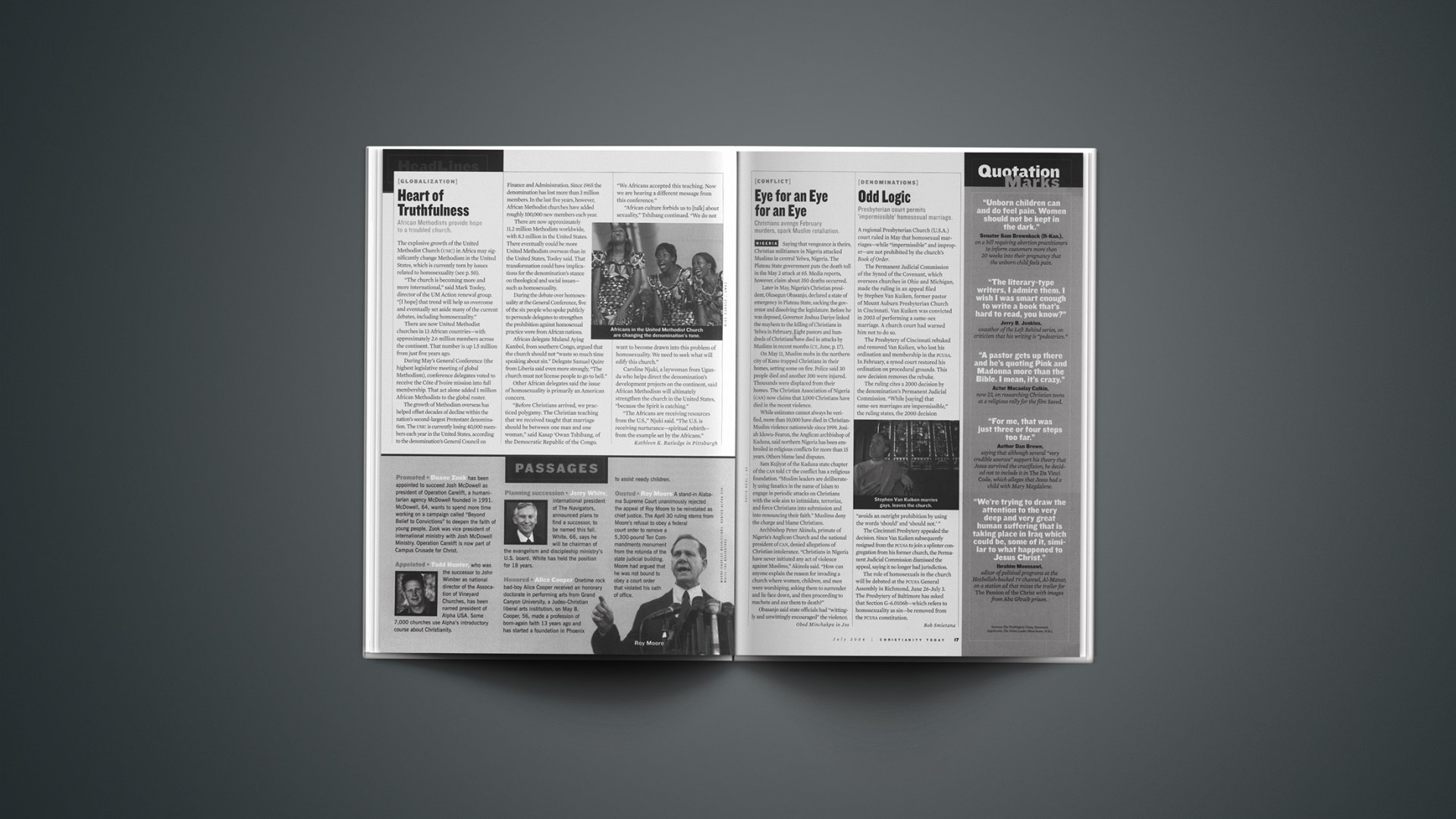Nigeria’s Muslims over the weekend celebrated the 200th anniversary of the Sokoto Caliphate, sub-Sahara’s largest Islamic empire. But for many Nigerians, the memories of religious war are weeks, not centuries, old.
Saying that vengeance is theirs, Christian militiamen in Nigeria last month attacked Muslims in central Yelwa, Nigeria. The Plateau State government puts the death toll in the May 2 attack at 65. Media reports, however, claim about 350 deaths occurred.
Later in May, Nigeria’s Christian president, Olusegun Obasanjo, declared a state of emergency in Yelwa, sacking the governor and dissolving the legislature. Before he was deposed, Governor Joshua Dariye linked the mayhem to the killing of Christians in Yelwa in February. Eight pastors and hundreds of Christians have died in attacks by Muslims in recent months.
On May 11, Muslim mobs in the northern city of Kano trapped Christians in their homes, setting some on fire. Police said 30 people died and another 300 were injured. Thousands were displaced from their homes. The Christian Association of Nigeria (CAN) now claims that 3,000 Christians have died in the recent violence.
While estimates cannot always be verified, more than 10,000 have died in Christian- Muslim violence nationwide since 1999. Josiah Idowu-Fearon, the Anglican archbishop of Kaduna, said northern Nigeria has been embroiled in religious conflicts for more than 15 years.
Others blame land disputes. “Farmers and herders are divided along ethnic as well as religious lines,” The New York Times explained last week. “The farmers call themselves natives of the land, and they are overwhelmingly Christian. The herders are ethnic Fulani who range across the region in search of pasture for their herds, and they are overwhelmingly Muslim.”
But Sam Kujiyat of the Kaduna state chapter of the CAN told CT the conflict has a religious foundation. “Muslim leaders are deliberately using fanatics in the name of Islam to engage in periodic attacks on Christians with the sole aim to intimidate, terrorize, and force Christians into submission and into renouncing their faith.” Muslims deny the charge and blame Christians.
Archbishop Peter Akinola, primate of Nigeria’s Anglican Church and the national president of CAN, denied allegations of Christian intolerance. “Christians in Nigeria have never initiated any act of violence against Muslims,” Akinola said. “How can anyone explain the reason for invading a church where women, children, and men were worshiping, asking them to surrender and lie face down, and then proceeding to machete and axe them to death?” Obasanjo said state officials had “wittingly and unwittingly encouraged” the violence.
Obasanjo now has the task of preventing more violence—which has continued to break out despite the state of emergency declaration and a restrictive curfew. More than three dozen Nigerians were killed June 8 over the rebuilding of a minaret. In comments about the Sokoto Caliphate bicentennial over the weekend, the President reportedly condemned both Muslim and Christian instigators of the May violence. “Anyone who burns houses or places of worship, either mosques or churches,” he was quoted saying by the Associated Press, is an “infidel.”
Copyright © 2004 Christianity Today. Click for reprint information.
Related Elsewhere:
More Christianity Today articles on the riots in Nigeria can be found on our Nigeria Riots Hot Topic page.










